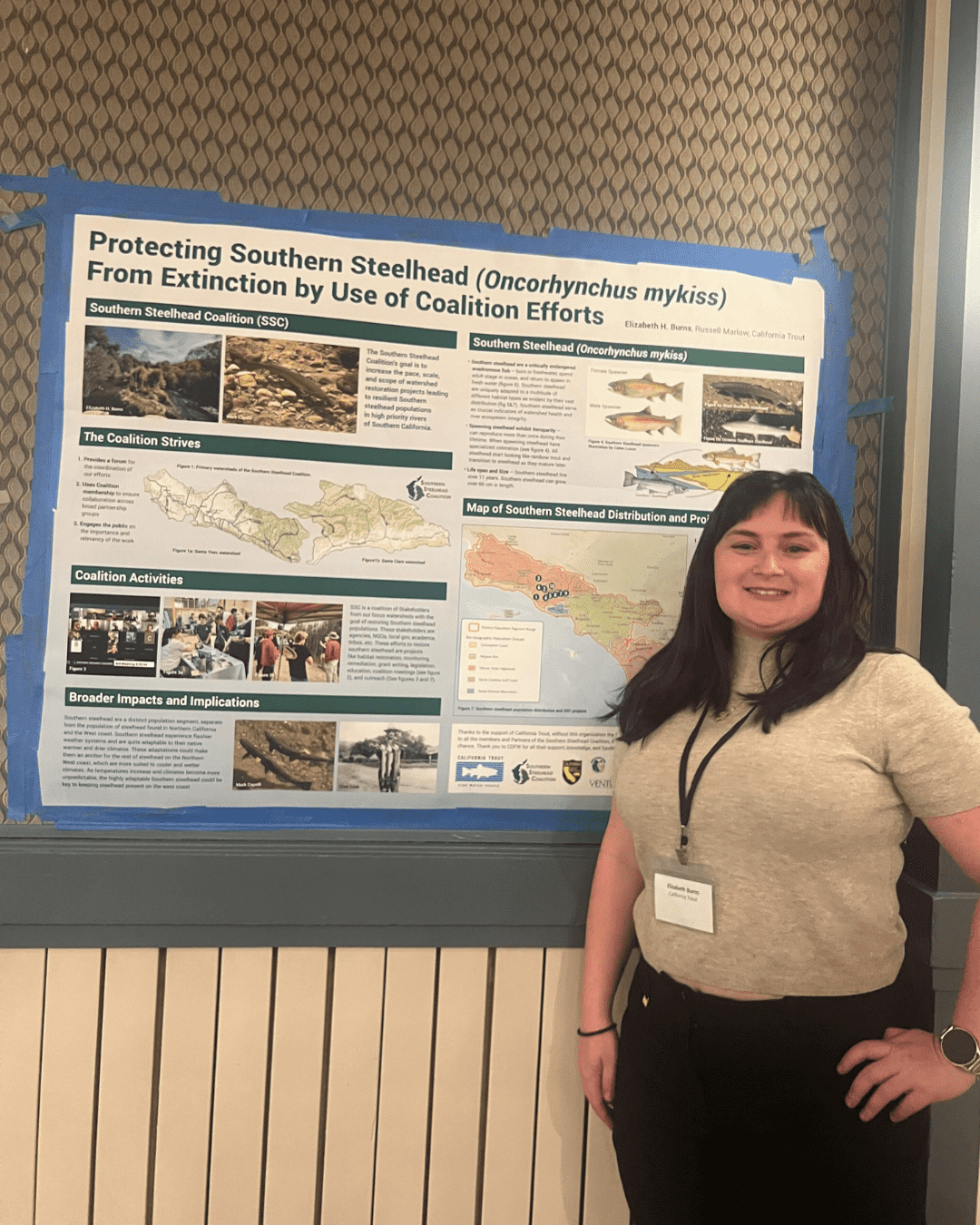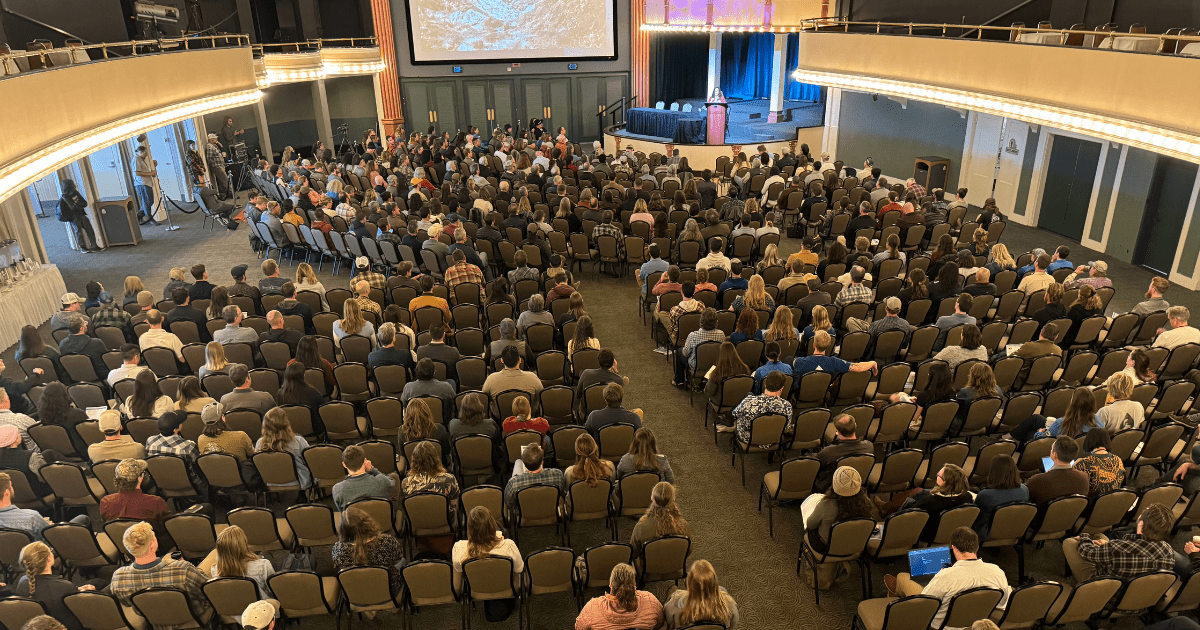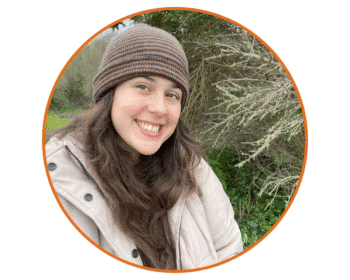 By Ashley Shannon, North Coast Project Coordinator
By Ashley Shannon, North Coast Project Coordinator
Attending the 42nd Annual Salmonid Restoration Federation (SRF) Conference was a true treat. The week was full of inspiration, authenticity, and empowerment. As a young female professional, it can be challenging to fully identify with the traditional demographics of the scientific community. But this year felt different—so many young professionals were confidently showcasing their incredible work in the field and making their voices heard.
The conference offered rich opportunities for networking, community building, and genuine hope for the future—something we deeply need right now. The four-day conference focuses on issues impacting salmonids and their habitats through a mix of research presentations, field tours, technical workshops, and more.
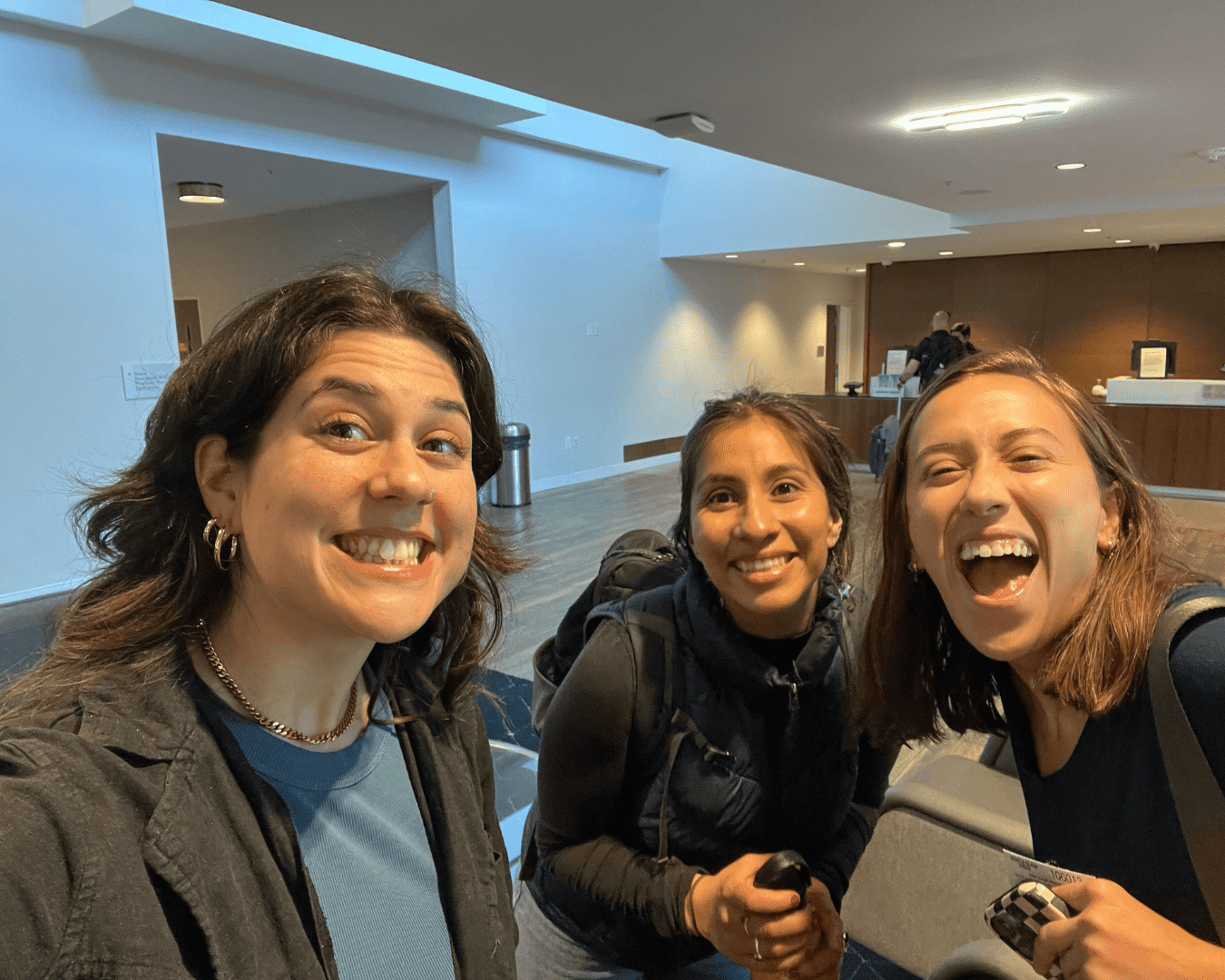
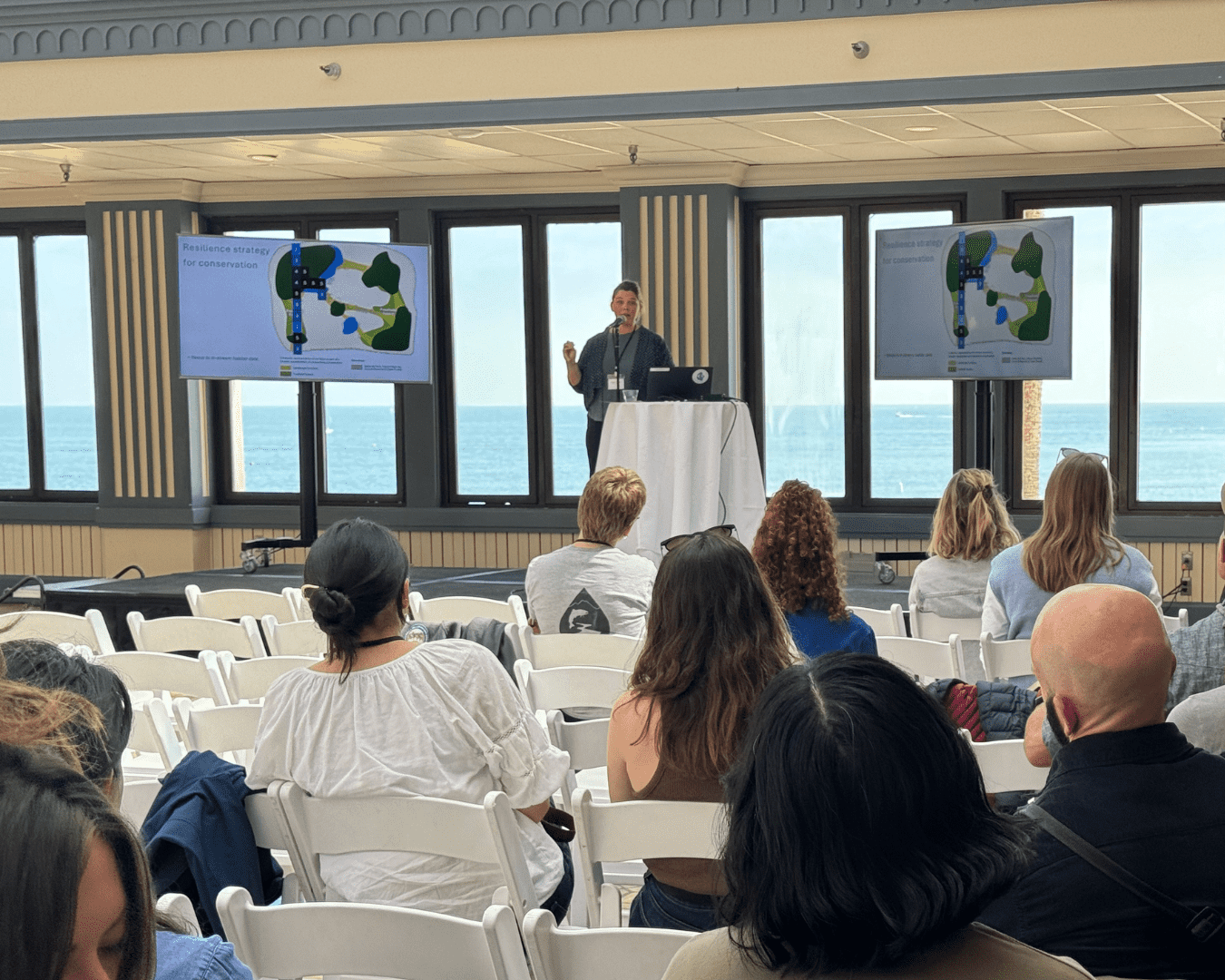
Inspiring talks from leaders like Kellyx Nelson, Executive Director of San Mateo Resource Conservation District, and Frankie Myers, former Vice Chairman of the Yurok Tribe, helped frame where we’ve come from and where we’re headed. Kellyx discussed how to humanely restore fisheries and Frankie discussed the significance of the Klamath dam removals. Hearing Ron Reed, cultural biologist of the Karuk Tribe, speak about the importance of fire and eco-cultural revitalization gave me chills—his message carried profound weight and passion. It’s rare to tap into a brain trust as rich and engaged as the SRF community. Connecting with colleagues and friends from across the fisheries world was deeply rewarding.
There were countless standing ovations throughout the week—the spirit of camaraderie was alive and strong. That said, the absence of our federal partners was profoundly felt. While their missing presence brought sorrow, it also served as a powerful reminder of the need for unity in divisive times.
One of the most meaningful parts of the week was participating in SRF’s mentorship program as a mentor. I learned so much not only about my mentee, but about myself. Supporting them and introducing them to this passionate, welcoming community was a true honor. I’d consider myself lucky to have met such a smart, talented, and driven individual. If anyone’s looking to hire an emerging fisheries scientist, I know just the person!
It was also incredibly exciting to see so many CalTrout staff presenting. Attending my colleagues’ sessions and witnessing the remarkable work we’re doing across the state was nothing short of inspiring. It reminded me how impactful and far-reaching our efforts are, especially when it comes to expansive, landscape-scale projects.
I’m proud to be part of CalTrout, to represent such a prominent organization, and to contribute to the incredible work we do every day. I left the conference feeling energized and empowered to raise my voice even more next year. I want to continue showing up authentically, boldly, and passionately and contribute to a restoration community in which all folks feel seen and heard. Thank you, SRF—and your incredible staff—for showing up for this community year after year. The brain trust you nurture is fueling the future of restoration and lighting the way down the long road ahead.
